The cycles of nature that surround the Palacio, as well as the context in which the building was originally constructed, form some of the keys to his new installation, which interlocks the dialectic between the inside and outside of discourses.
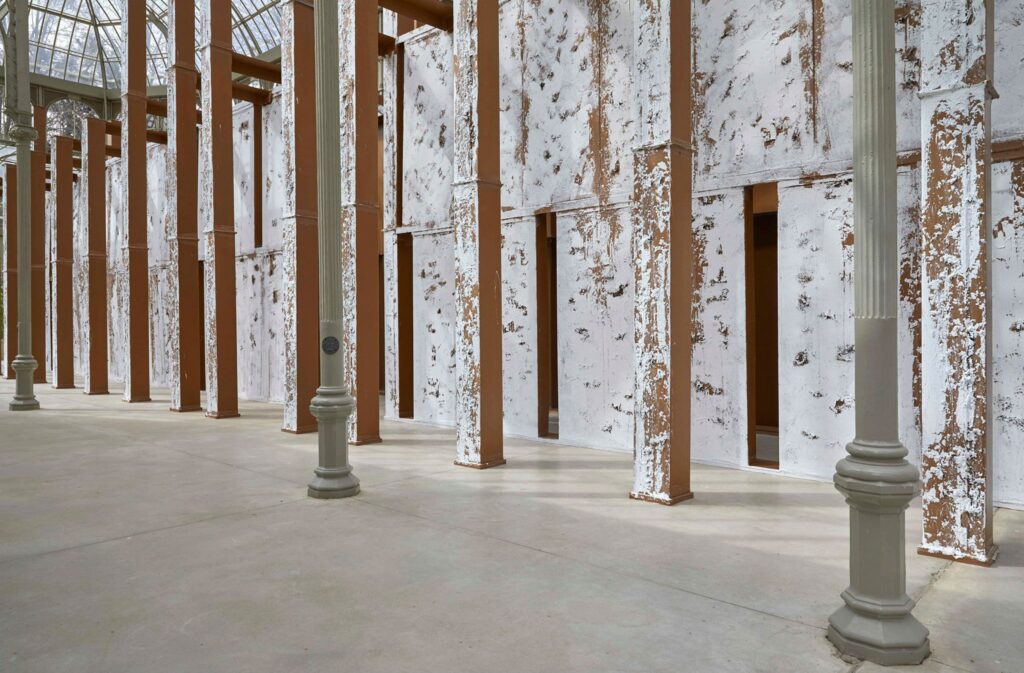
Much of the work of Carlos Bunga (Oporto, 1976) impugns the concept of architecture as a language of power, questioning established inertias such as order, solidity, or eternity. Bunga voluntarily relinquishes the grandiloquence of traditional materials and opts instead for precarious structures made only of cardboard and adhesive tape.
Practical info
„Carlos Bunga. Against the Extravagance of Desire“
April 8 – September 4, 2022
Palacio de Cristal at Retiro Park
P.º de Cuba, 4, Madrid
Spain
Carlos Bunga focused the beginning of his career on painting, before expanding his interests towards three-dimensional experimentations, allowing him to explore the interrelationships between bodies and spaces. A significant part of his work challenges the concept of architecture as a language of power, calling into question deep-seated inertia such as order, solidity and eternity. Bunga also willingly dispenses with the bombast of traditional materials, opting instead for the precariousness of certain structures made solely from packing cardboard and tape.
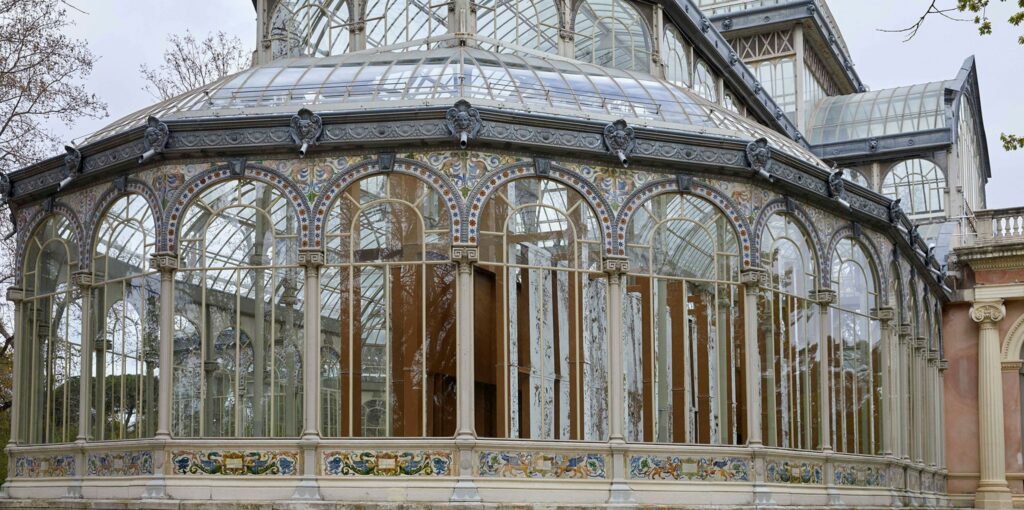
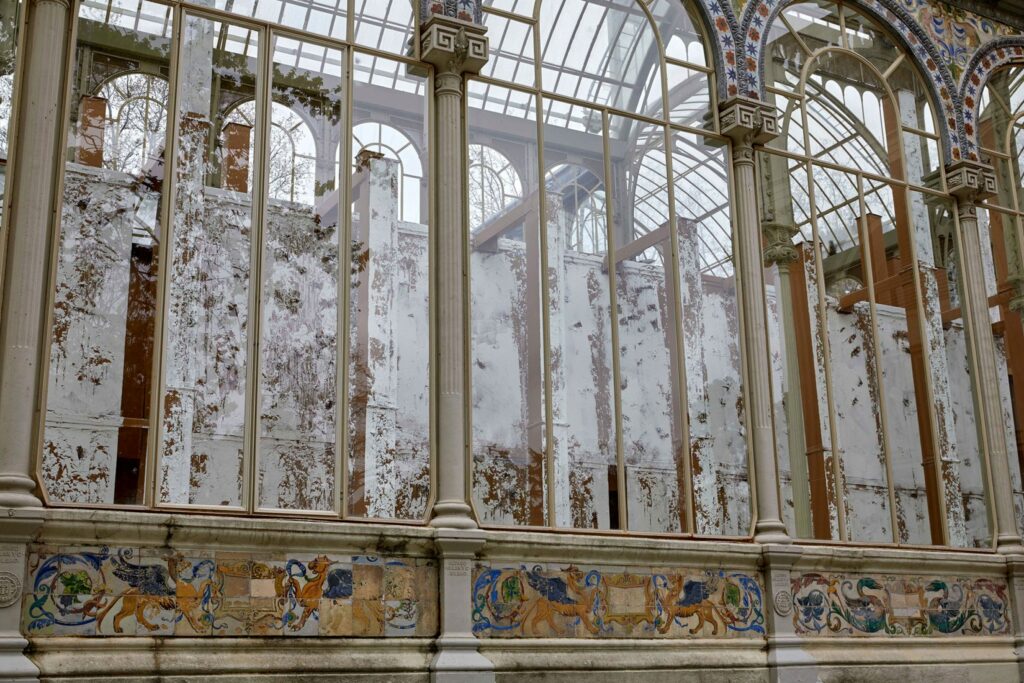
His installations — often impulsively off-scale maquettes — invoke the multiple possibilities of architecture at full strength. Floors, ceilings, walls and makeshift pillars introduce the temporality of constructive forms, while in the assembly of the installation its dismantling is already implicit. The graphic documentation of the process ends up the only “ruin”, the only reminder, of architecture that once existed. Modes of doing, and undoing, which underscore at once the constant mutability of the artistic process and the performative character of its social interaction.

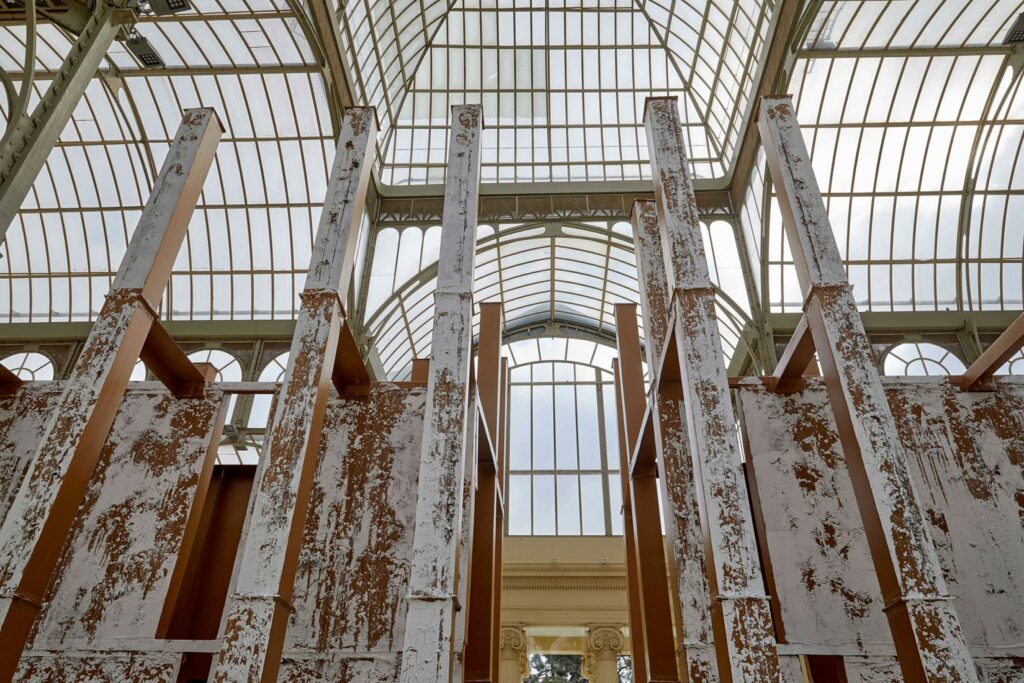
As ephemeral constructions, subject to the circumstantial nature of time and place, Carlos Bunga’s interventions also possess the capacity to deconstruct the spaces in which they are inserted, situationally, to then be resignified. Such examples include the compartments he lined up in the Kursaal Conference Centre in San Sebastián for Manifesta 5 (2004), the installation of the central courtyard in the Pinacoteca do Estado (State Art Gallery) in Sao Paulo (2012), his intervention in the central point of La Capella in the Museu d’Art Contemporani de Barcelona (MACBA, 2015), and the maze he articulated in the Museum of Contemporary Art Detroit (MOCAD, 2018). Using a building within a building, continent on content, Bunga re-sizes the experience of the spectator, who not only contemplates the work, but does so as he becomes part of it and transforms it.
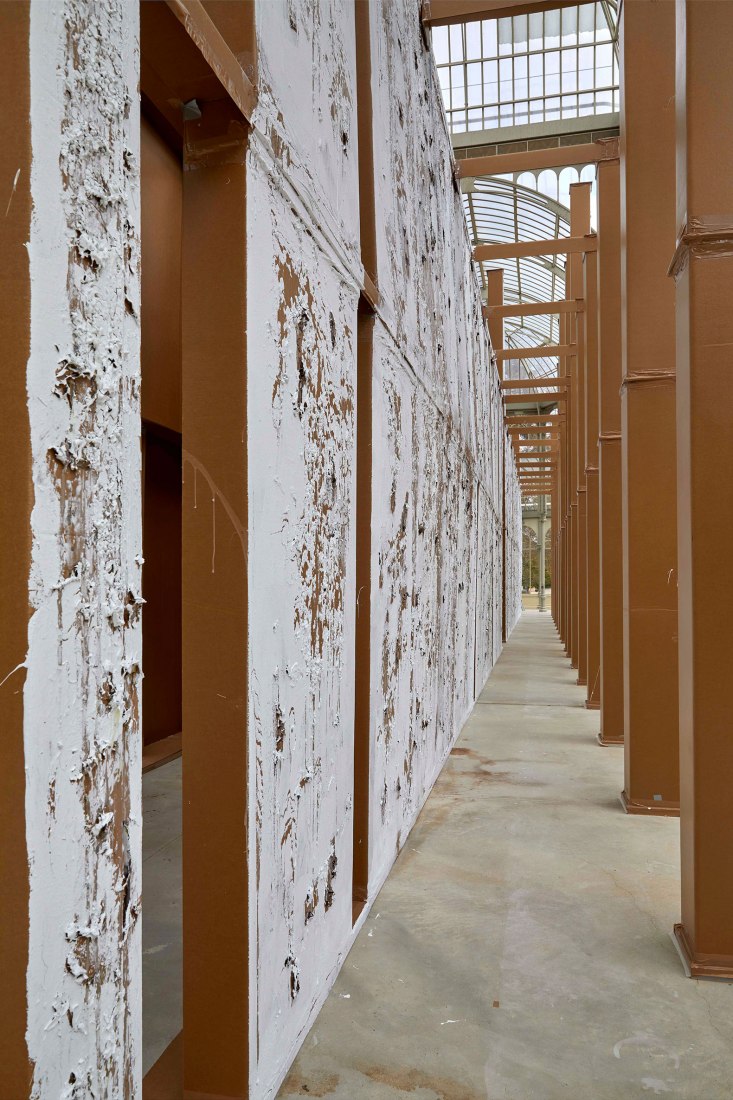
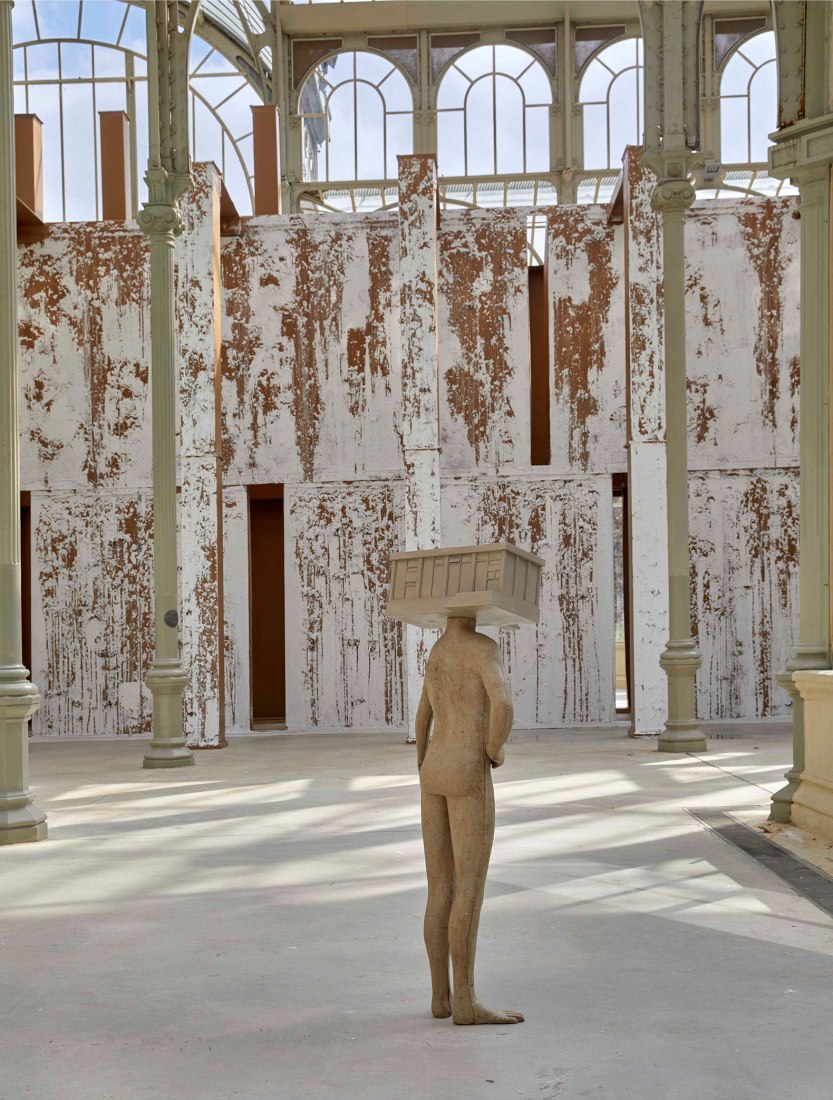
This project for the Palacio de Cristal is the continuation of the previous investigations with which Bunga introduces new layers of reading into a location that is already connoted in its own right. The cycles of nature that surround the Palacio, as well as the context in which the building was originally constructed, form some of the keys to his new installation, which interlocks the dialectic between the inside and outside of discourses.
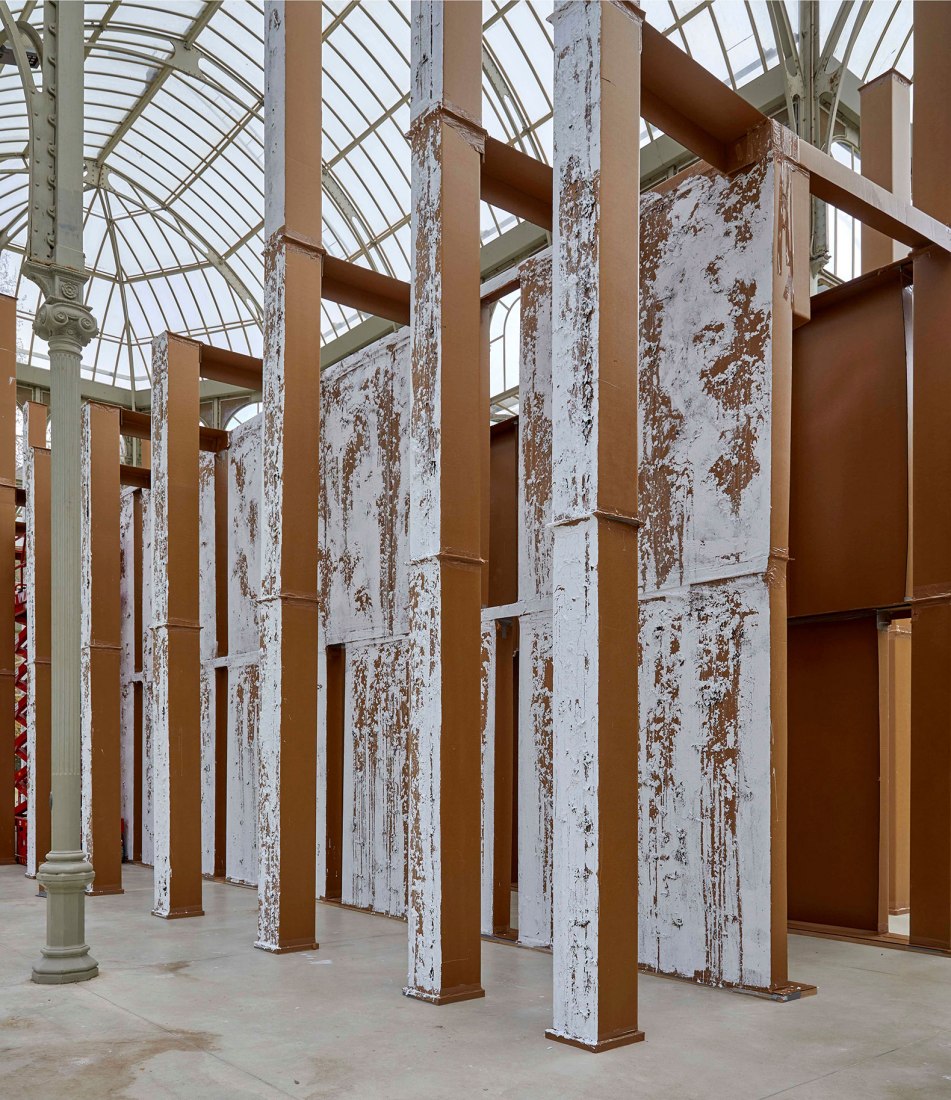
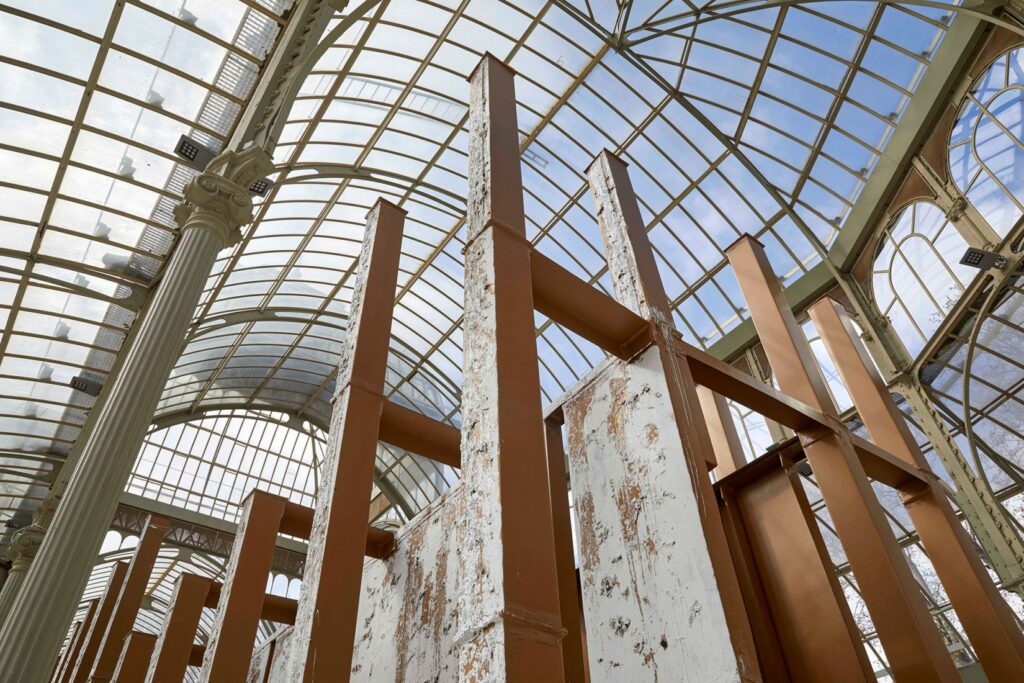
Carlos Bunga’s work has been exhibited in major international museums and art centres such as Museu de Serralves in Porto (2012), Museo Universitario de Arte Contemporáneo MUAC-UNAM in Mexico City (2013), Whitechapel Gallery in London (2020) and Secession in Vienna (2021), among others. This project for the Museo Reina Sofía is his biggest intervention in Madrid to date.

